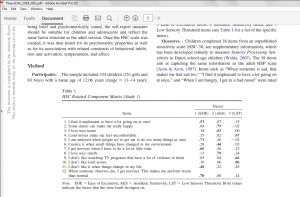Vibrant Days….
Flourishing with Sensory Processing Sensitivity
October 2019
Events:
Best Practices for Parents & Teachers of Highly Sensitive Children/Teens Workshop
(A 6 Hour Workshop for Parents & Teachers Seeking to Support Their
Highly Sensitive Child/Teen)
Date: Saturday, October 26, 2019 9:00 AM – 3:00 PM
Location: Q Center, St. Charles, IL
Registration: https://www.candycrawfordlcsw.com/best-practices-for-parents-of-highly-sensitive-children-teens/
SELF REGULATED, Parenting the Highly Sensitive Teen as a Highly Sensitive Parent
Our teenage girls were beginning to make choices that didn’t fit the idyllic image we had been carrying since the days we learned I was pregnant. The stakes felt higher, and the waters of life had developed whitecaps upon them. As a highly sensitive parent with two daughters who also have the trait, I/we needed to make some changes to our unconscious ideals about our children and parenting. Being a clinician with high sensitivity had offered me invaluable insight into what allowed clients (whether children, teens, or adults) to not only face their struggles but to proceed through them and emerge as fuller, wiser people.
Children born with the trait of high sensitivity inhabit a finely tuned nervous system, and thus are acutely aware of the moods of others. As a parent I can tell you our kids can read our moods by capturing our facial expressions, sensing our inner collapses, and can even tell when we are not giving them our full attention but pretending to (darn it). Since this trait is a temperament it remains present our entire lives, and as a parent, I have never stopped noticing the details in the moods and nuances of our girls, nor they, mine. One of the crucial skills we’ve all had to learn is self-regulation. This is no simple task for a highly sensitive teen or parent, especially when one’s awareness of the other can be exquisite with detail.
Often, children or teens become acutely aware of parents’ distress and unconsciously pick it up which leads to the child wearing the parent’s affect. In these unique parent/child dynamics, the child naturally turns to the adult for cues on how to feel or cope. For example, when children hear horrible things in the news, they commonly turn to their parents to learn how to respond. It’s our task as parents to initially handle our own reactions and then be able to provide a calm presence for our children. Again, no easy task.
I have spent focused time with clients helping them un-blend from others and be in touch with their own separate selves and inner lives. It has been rewarding watching clients, as well as my own children, take ownership of their inner functioning and experience a sense of feeling grounded and capable of making choices. Where I have spent time with parents is helping them do what they can to achieve their own sense of calm so their children can relax and tend to their own inner self-regulating. It surely makes for a less chaotic home life when each individual learns to tend to their own emotional states. This naturally leads to improved states of being, and in turn, improves our ability to relate to one another.
Teaching children to self-regulate with the trait of high sensitivity is also critical since those with the trait are capable of feeling deeply just about every emotion there is to feel. Learning to better manage my own feelings and reactions has been helpful as watching our girls grow up and make bigger decisions for their lives can be quite daunting and scary, especially for us, as their parents. Finally, learning to self-regulate has allowed us all to also experience a level of peace as we take responsibility for our internal states and make choices that create freedom and groundedness for everyone in the family.
A brief self-assessment for teens:
“Whether the human race is a success or failure depends on how parents are responding to their children. It’s not about survival anymore. It’s much more about secure attachments.”
Elaine Aron
Somehow this toddler and I are asking the same question.

